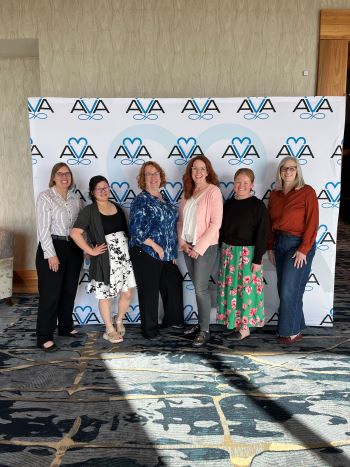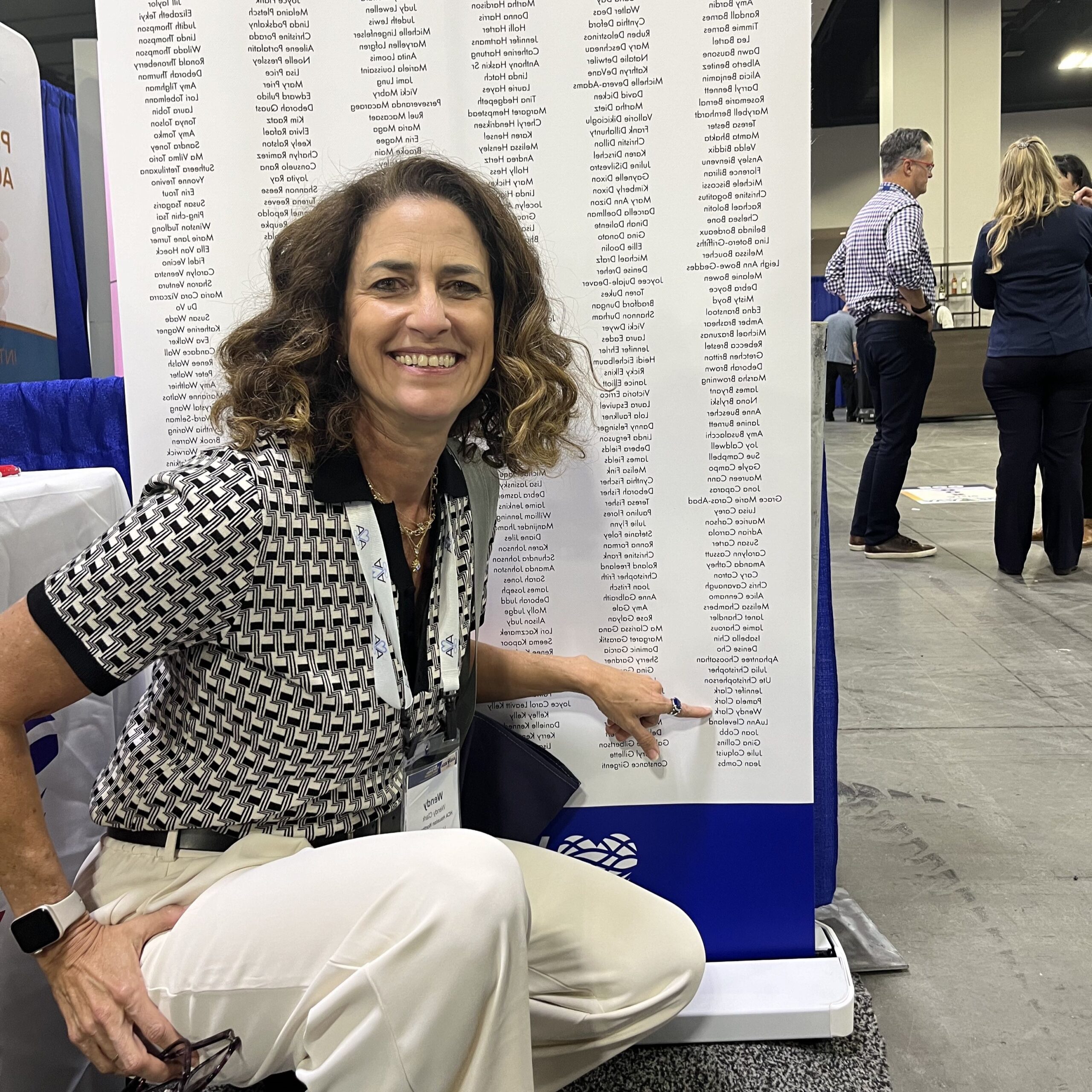
Hours of work go into maintaining a board certification like the VA-BC™: writing valid questions, ensuring questions accurately reflect the experience and knowledge of a vascular access specialist, double checking our references, and ensuring all of this is unbiased and fair for each test taker.
And then we do it all again for the next iteration of the exam in six months.
The people that hold all of this together, the clinicians responsible for advancing vascular access certification, are our volunteers.
“I thought that it was just an organization creating questions. I didn’t realize that there were volunteers involved. VACC goes through four or five different processes before [a question] gets put on an exam,” said Linh Truong, BSN, RN, VA-BC™, a volunteer with VACC.
As a newer VA-BC™ up for her first renewal in December 2024, Truong shared the misunderstandings she initially had about volunteering and why this work makes such a difference.
Five misconceptions of volunteering
1. “There’s nothing in it for me.”
Volunteering for a cause that matters to you – like the VA-BC™ matters to Truong – helps you to increase your knowledge of the subject, network with peers, and advance your career.
Truong has been using her experiences as a volunteer to heighten her professional growth.
Before her time with VACC, she began her love for volunteering by chairing a council at work, an activity she said jumpstarted her drive to give back and be involved in her specialty.
“Prior to that, I would just go to work and come home… [Volunteering] motivates you to be more out there and grow in that profession.”
Truong also adds that she wants to pass on this passion for being involved in her community to her children.
“When I talk to my daughter or she sees me working, it makes me feel like she knows doing something like this is important. I want to be a role model for her, not just to go to work and come home, but to grow – to have professional growth and grow in yourself – and have a better future for her and for myself.”
2. “I have to be an expert to volunteer.”
Truong became Vascular Access-Board Certified™ in January 2022, then began volunteering in 2023. To her, volunteering is also a way to further her education.
“I don’t want to be stuck in this small little nursing world. I love patient care, but I wanted to learn what else is out there,” she said.
The idea of volunteering was intimidating for her at first. She worried she didn’t have enough knowledge to contribute when writing questions for the VA-BC™ exam. In her department, she focuses less on insertions and spends more time on care, troubleshooting, and maintenance of devices as well as educating patients on how to care for them.
But she quickly learned that other volunteers had their own specialized knowledge to lend when writing and reviewing questions. And from them, Truong found her own knowledge increasing.
“They all have different thoughts and things they’re really good at. When you hear their thoughts and explanations, you think, ‘Oh my gosh, I’ve never encountered this situation, but this is really interesting.’”

3. “The organization writes the questions, then leaves the test on autopilot.”
Volunteers and staff review the VA-BC™ exam and make updates each time the exam is given, in June and December of each year. Truong has served on two volunteer committees that are part of this process: item writing and item reviewing.
The item writers do as the name suggests: they write the exam questions, or “items.” Once assigned a specific topic, like central line complications or arterial lines, for example, they create a question. Then, they assign the answer based on accepted references and write the distractors, or incorrect options to the multiple-choice question.
“I usually come up with a scenario,” Truong said about item writing. “When you understand a scenario, that’s when you understand the content.”
Item reviewers, on the other hand, edit the questions to ensure they are unbiased, accurate, and fit to be on the exam.
After item reviewers, the test goes through another review process before it gets to the test taker, and a last review after the exam to analyze how the questions performed.
“I used to think some questions on the exam were hard. But now I realize that these questions actually went through the reviewers and committees, and they all approved it, so that means it’s something important, something I need to know.”
Because we introduce new questions on every iteration of the exam for test confidentiality and validity, these volunteers are vital to the health of the credential.
4. “Volunteering is unpaid, so it’s not worth doing.”
The time and effort you spend volunteering is not paid for, but VACC offers CEs to put toward your VA-BC™ renewal. We know your time is valuable, and we want to recognize the important work you do to keep the only multidisciplinary credential in vascular access running smoothly.
VACC also hosts in-person volunteer meetings at no cost for volunteers, from the annual board meeting to item reviewing and a job analysis task force.
Truong attended the VACC in-person item review ahead of the Association for Vascular Access Scientific Meeting in September 2024 and was able to network with her peers face-to-face.
5. “I’m just one person – my impact doesn’t matter that much.”
“People think volunteering is not important, that you’re doing minimal work,” Truong said. “But actually, volunteering for VACC I feel like you are being part of something, a little part of the exam. It makes a difference. You’re part of that something.”
The VA-BC™ could not exist without our volunteers like Truong. Each clinician who shares their knowledge with us makes a difference in validating vascular access professionals around the U.S. and the world.
See what opportunities we have available to grow professionally and build a network of other dedicated vascular access specialists—volunteer with us.



